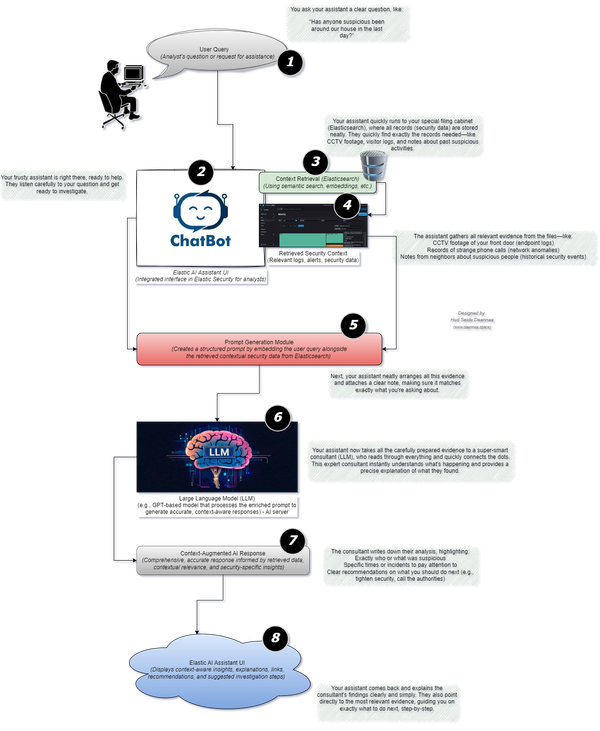The Impact of AI on Human Cognition: Enhancing Our Minds or Eroding Our Skills?
AI enhances human cognition but risks dependency, potentially reducing creativity and critical thinking. The future lies in balancing AI’s benefits with preserving our unique cognitive strengths.

Introduction
Artificial Intelligence (AI) has made significant strides in recent years, transforming everything from how we work to how we engage in daily activities. As AI continues to evolve, it increasingly intertwines with our cognitive processes, offering tools that enhance our abilities in ways once thought impossible. However, this rise of AI also brings concerns about what it might be taking away from us as humans. This blog explores both sides of the AI coin—its potential to augment our mental capacities and the risks it poses to our cognitive independence. We'll also delve into the intriguing question: Will AI ever truly take over, and how close are we to that reality?
What AI is Taking Away from Humans
Dependency on AI for Problem-Solving
One of the most significant shifts we see with AI's integration into our lives is its ability to solve complex problems. While this can be a tremendous asset, there's a downside. The more we rely on AI to solve our problems, the less we may engage in critical thinking and creativity—skills that are vital for innovation [1][3].
On the flip side, AI's efficiency in problem-solving frees us to focus on more strategic and creative endeavors, potentially leading to breakthroughs that might not have been possible without this technological assistance [4].
Reduction in Mental Effort
AI is taking on tasks that once required considerable mental effort, such as reading, writing, and learning new skills. While this can be incredibly convenient, it raises a concern: Are our brains getting the exercise they need? [1][3]
However, by automating routine tasks, AI allows us to direct our mental energy toward more complex and fulfilling activities, enhancing our cognitive experience rather than detracting from it [4].
Social Interaction and Emotional Intelligence
With AI-driven chatbots and virtual assistants becoming more common in social interactions, there's a risk of reduced face-to-face communication, which is essential for developing emotional intelligence and empathy [3].
Yet, AI can also enhance social interactions by connecting us with others who share our interests and by providing tools that help us practice and improve our social skills, especially in contexts like language learning or social anxiety support [4][5].
The Pros and Cons of AI-Enhanced Cognitive Exercises
Personalized Learning and Brain Training
AI's ability to provide personalized learning experiences is one of its greatest strengths. By adapting to individual strengths and weaknesses, AI can make brain training more effective and engaging [5].
On the other hand, reliance on AI for personalized learning could diminish our capacity for self-assessment and independent adaptation, weakening our problem-solving and critical thinking skills [1][3].
AI in Creative Endeavors
AI tools are increasingly being used in creative fields, from generating art and music to providing feedback on creative projects. This can lead to new levels of creative expression [4].
But there's a risk that AI might overshadow human creativity, making creative processes more mechanized and less spontaneous [3].
Enhanced Cognitive Rehabilitation
AI-driven cognitive rehabilitation programs offer tailored exercises that adapt to a patient's progress, promoting faster and more effective recovery from brain injuries or cognitive decline [5].
However, the growing dependence on AI for these tasks might reduce the role of human therapists and the personalized care they provide, potentially leading to a less human-centered approach to treatment [3].
Will AI Ever Take Over, and How Close Are We?
The question of whether AI will one day take over is a topic of much debate. While AI is advancing rapidly and machines are becoming more capable and autonomous, the notion of AI completely "taking over" remains speculative.
Current Capabilities
AI has already outperformed humans in specific tasks, such as data analysis, complex calculations, and even certain creative endeavors. This progress has sparked concerns about job displacement and the erosion of skills traditionally seen as uniquely human [1][4].
General AI vs. Narrow AI
The AI we encounter today is largely "narrow AI," designed to perform specific tasks rather than possessing the general intelligence of a human. While narrow AI can surpass human abilities in targeted areas, we are still far from achieving "general AI"—a form of AI that could replicate the full spectrum of human intelligence across diverse tasks [2][4].
Ethical and Technical Challenges
Developing general AI poses significant ethical and technical challenges. Ensuring that AI systems are safe, fair, and aligned with human values is complex, and the nature of human intelligence itself presents substantial barriers to creating a machine that could truly rival our cognitive abilities [3][4].
How Far Are We?
Experts generally agree that we are decades away from achieving general AI, if it is even possible at all. As AI continues to integrate into our lives, the focus is likely to remain on developing tools that complement human abilities rather than replace them [4][5].
Future Outlook
Looking ahead, it's more likely that we will see a growing partnership between humans and AI, with each enhancing the other's strengths. While AI may handle increasingly complex tasks, human creativity, empathy, and ethical reasoning will remain irreplaceable. The future may involve a symbiotic relationship where AI augments human capabilities, enabling us to achieve greater things together [4][5].
Analysis
AI has the potential to significantly enhance our cognitive abilities, making tasks easier and more efficient. However, this convenience comes with risks—particularly the possibility of diminishing our problem-solving skills, creativity, and emotional intelligence [1][3]. As AI continues to evolve, the key challenge will be finding a balance where AI serves as a tool to enhance, rather than erode, the qualities that define us as humans.
While the idea of AI taking over might be a popular theme in science fiction, in reality, we are still far from such a scenario [2][4]. The future likely holds a collaborative partnership between humans and AI, where each plays a vital role in advancing our capabilities [4][5]. As we navigate this evolving landscape, it's essential to remain mindful of how we use AI to ensure that it enhances our lives without compromising our unique human attributes.
Sources:
[1] https://www.nature.com/articles/s41599-023-01787-8
[2] https://www.sciencedirect.com/science/article/pii/S2666920X22000625
[3] https://www.psychologytoday.com/intl/blog/the-digital-self/202311/ai-and-the-erosion-of-human-cognition
[4] https://www.ericsson.com/en/blog/2023/7/artificial-intelligence-vs-human-cognition-the-epic-battle-of-think-tanks
[5] https://www.surrey.ac.uk/news/using-ai-related-technologies-can-significantly-enhance-human-cognition-finds-new-study





